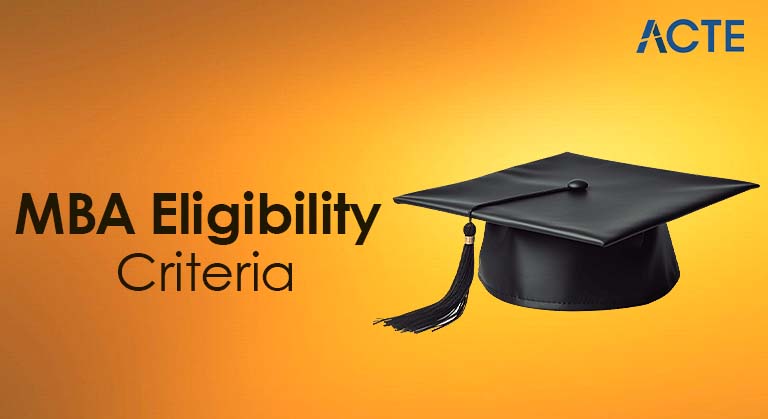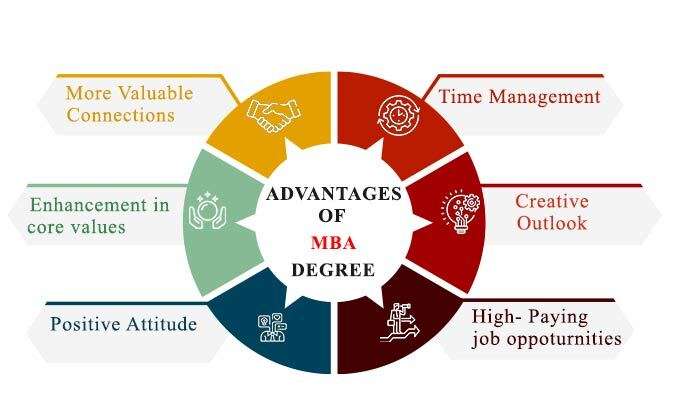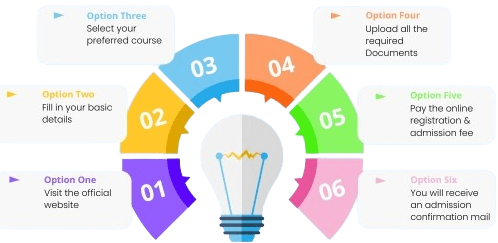
- Introduction to MBA Eligibility
- Basic Academic Requirements
- Entrance Exams for MBA Admission
- Minimum Work Experience (For Executive MBAs)
- MBA Eligibility for Different Specializations
- Age Limit and Relaxations (If Any)
- Eligibility Criteria for International MBA Programs
- Reservation Policies (Category-wise Eligibility)
Introduction to MBA Eligibility
Pursuing a Master of Business Administration (MBA) is a major step for anyone aiming to sharpen managerial and leadership abilities, but admission requires meeting specific criteria such as holding a bachelor’s degree from a recognized university, meeting minimum academic benchmarks, and often having 1–5 years of work experience that demonstrates practical business exposure. Many candidates also strengthen their profile with certifications like PMP Training which showcases solid project management skills. Competitive GMAT or GRE scores are commonly required, though some schools offer waivers, and non-native English speakers must provide TOEFL or IELTS scores. A strong application further includes an impressive statement of purpose, a professional resume, credible recommendation letters, and sometimes an interview to evaluate communication and leadership potential. While requirements vary across institutions and countries, a well-rounded profile combining academics, experience, interpersonal strengths, and value-adding certifications like PMP Training significantly boosts MBA eligibility.
To Explore PMP in Depth, Check Out Our Comprehensive PMP Certification Training To Gain Insights From Our Experts!
Basic Academic Requirements
- Bachelor’s Degree: Applicants must have completed a bachelor’s degree or an equivalent qualification from a recognized university in any discipline.
- Minimum GPA or Marks: Many institutions require a minimum Grade Point Average (GPA) or percentage score, often around 50-60%, although top programs may expect higher academic performance.
- Recognized Institution: The undergraduate degree must be from an accredited or recognized institution, ensuring the academic quality meets MBA program standards.
To pursue an MBA, candidates must meet certain academic criteria that demonstrate their readiness for rigorous graduate-level study. These basic academic requirements ensure that applicants have a solid educational foundation to succeed in business school. While requirements can vary slightly by institution, the following are commonly expected:

- Final-Year Students: Some programs allow final-year undergraduate students to apply, provided they can submit proof of graduation before the MBA course begins.
- Academic Transcripts: Official transcripts of all academic records must be submitted as part of the application, showcasing subjects studied and grades earned.
- Quantitative Skills: While not mandatory for all programs, a background in subjects like mathematics, economics, or statistics is often preferred or advantageous.
Entrance Exams for MBA Admission
Entrance exams play a crucial role in MBA admissions, serving as a standardized measure to evaluate a candidate’s aptitude for business studies. These exams test a range of skills, including quantitative ability, verbal reasoning, data interpretation, logical thinking, and analytical writing. In India, popular MBA entrance exams include the CAT (Common Admission Test), XAT (Xavier Aptitude Test), MAT (Management Aptitude Test), CMAT (Common Management Admission Test), and GMAT (Graduate Management Admission Test). Internationally, the GMAT and GRE (Graduate Record Examination) are widely accepted by business schools around the world. For candidates wondering what is an MBA it is a postgraduate degree focused on developing managerial, leadership, and strategic skills essential for careers in business and management. Each exam has its format, scoring system, and difficulty level, with some focusing more on logic and reasoning while others emphasize language and mathematics. Scores from these exams help institutes shortlist candidates for further rounds such as group discussions, personal interviews, and written ability tests. Some universities also conduct their own entrance exams. While a high score can significantly improve admission chances to top B-schools, many institutes also consider the overall profile, including academics, work experience, and extracurriculars. Candidates are advised to choose the entrance exam based on their target colleges and prepare thoroughly to meet the competitive standards set by reputed MBA programs.
Are You Preparing for PMP Jobs? Check Out ACTE’s Project Management Interview Questions & Answer to Boost Your Preparation!
Minimum Work Experience (For Executive MBAs)
- Minimum Experience Required: Most Executive MBA programs require candidates to have at least 5 to 10 years of full-time work experience, depending on the institution.
- Relevant Managerial Experience: Preference is often given to applicants who have held supervisory, managerial, or leadership roles, showcasing their readiness for advanced business training.
- Industry Diversity: Candidates from a wide range of industries, including IT, finance, healthcare, and manufacturing, are welcome, as diverse experience enriches peer learning.
Executive MBA (EMBA) programs are designed for mid-to-senior-level professionals who want to elevate their leadership and strategic management capabilities without stepping away from their careers. Unlike regular MBA programs, EMBAs place heavy emphasis on real-world experience, making substantial work experience a core eligibility requirement. Many professionals also pursue certifications like PMP Training to strengthen their managerial credibility and showcase advanced project leadership skills, which can further enhance their EMBA application. Here are the common requirements regarding minimum work experience:
- Career Progression: Admissions committees look for steady career growth and promotions as indicators of a candidate’s leadership potential and professional development.
- Current Employment: Many programs expect applicants to be currently employed, as EMBA coursework is often structured to align with ongoing professional responsibilities.
- Letter of Recommendation: A recommendation from a current or former employer validating the candidate’s work experience and leadership ability is often required.
- No Official Age Limit: Most universities and business schools do not impose a maximum age limit for regular MBA programs, making them accessible to candidates of various age groups.
- Preferred Age Range: For full-time MBA programs, candidates typically fall in the 21 to 30 age group, while Executive MBA applicants are usually between 30 and 45 years old.
- Government Institutions: Some government-affiliated colleges or entrance exams may have specific age criteria or mention preferred age brackets.
- Reserved Category Relaxations: Candidates from SC/ST, OBC, or PwD categories may be eligible for age relaxation, typically aligned with government norms.
- Sponsored Candidates: Employees sponsored by companies or government departments for an MBA may be older than average, and many institutes accept them without age restrictions.
- Flexibility in Executive Programs: Executive and part-time MBA programs are especially flexible with age, focusing more on experience and leadership roles than on age.
MBA Eligibility for Different Specializations
MBA eligibility criteria are generally consistent across specializations, but some variations may exist depending on the focus and nature of the program. Regardless of the specialization, be it Finance, Marketing, Human Resources, Operations, Information Technology, or International Business, candidates are typically required to hold a bachelor’s degree from a recognized university with a minimum aggregate score, usually around 50% for the general category and slightly lower for reserved categories. Entrance exams such as the CAT, XAT, GMAT, or other state- or university-specific tests are commonly required across all specializations. For those interested in the HR stream, understanding What is Human Resource Management is crucial, as it involves managing employee relations, recruitment, training, performance, and organizational development. However, certain specializations may prefer candidates with relevant academic backgrounds or work experience. For example, an MBA in Finance might favor applicants with a background in commerce, accounting, or economics, while an MBA in IT or Business Analytics may be more suited to candidates with a degree in engineering, mathematics, or computer science. Additionally, work experience is not mandatory for most full-time MBA programs, but it can be a plus, especially for specializations like Executive MBA or MBA in Strategy and Leadership. Proficiency in English, strong communication skills, and a well-rounded profile are valued across all streams. Ultimately, while the core eligibility remains similar, specific interests or prior knowledge can enhance a candidate’s fit for certain MBA specializations.

Age Limit and Relaxations (If Any)
While most MBA programs do not have a strict age limit, general expectations and occasional relaxations vary depending on the type of MBA and the institution offering it. Age is usually not a barrier, especially for candidates with relevant qualifications and experience, but some guidelines do exist, particularly in government or reserved category admissions. Here are the key points regarding age limits and relaxations:
Are You Interested in Learning More About PMP? Sign Up For Our PMP Certification Training Today!
Eligibility Criteria for International MBA Programs
Eligibility criteria for international MBA programs are designed to assess a candidate’s academic background, professional experience, and overall readiness for global business education. Most international business schools require applicants to hold a bachelor’s degree or equivalent from a recognized institution, regardless of the field of study. A strong academic record is preferred, though exact GPA requirements vary across universities. One of the key components of eligibility is performance in standardized tests like the GMAT or GRE, which help evaluate a candidate’s analytical, quantitative, and verbal skills. Additionally, proficiency in English is essential, and non-native English speakers are generally required to submit TOEFL, IELTS, or other approved English language proficiency test scores. Work experience is another important factor; many international MBA programs, especially top-ranked ones, prefer applicants with 2 to 5 years of full-time, post-graduate work experience, although early-career MBA options also exist. Understanding the Nature of Managerial Economics Importance importance is crucial for applicants, as it equips future managers with the ability to make informed business decisions using economic principles, optimize resource allocation, and analyze market dynamics in a global context. Applicants must also submit a well-rounded application package including a resume, statement of purpose or essays, letters of recommendation, and sometimes video interviews. Cultural adaptability, leadership potential, and international exposure are highly valued. Overall, while the core eligibility remains consistent, international MBA programs emphasize a global outlook and holistic assessment of the candidate’s potential for leadership and contribution in a diverse academic environment.
Are You Considering Pursuing a Master’s Degree in PMP? Enroll in the PMP Masters Program Training Course Today!
Reservation Policies (Category-wise Eligibility)
Reservation Policies (Category-wise Eligibility) in India are designed to promote social equality and ensure representation for historically marginalized and underrepresented communities. These policies provide specific quotas in education, employment, and government institutions for categories such as Scheduled Castes (SC), Scheduled Tribes (ST), Other Backward Classes (OBC), and Economically Weaker Sections (EWS). SC and ST candidates receive reservation based on historical discrimination and social disadvantage, while OBCs benefit from quotas to address social and educational backwardness, excluding the creamy layer. The EWS category, introduced more recently, offers 10% reservation to economically weaker individuals from the general category who are not covered under other reservations. Additionally, horizontal reservations are provided for women, persons with disabilities (PwD), ex-servicemen, and others within each vertical category. Candidates must provide valid certificates issued by competent authorities to prove their category status and, where applicable, income limits. Many aspirants also pursue professional certifications like PMP Training to strengthen their qualifications and improve career opportunities alongside reserved benefits. These policies aim to create a level playing field, expand access to opportunities, and bridge socio-economic gaps across the country, though eligibility criteria, income thresholds, and documentation requirements may vary across states and institutions based on local regulations and central government guidelines.

